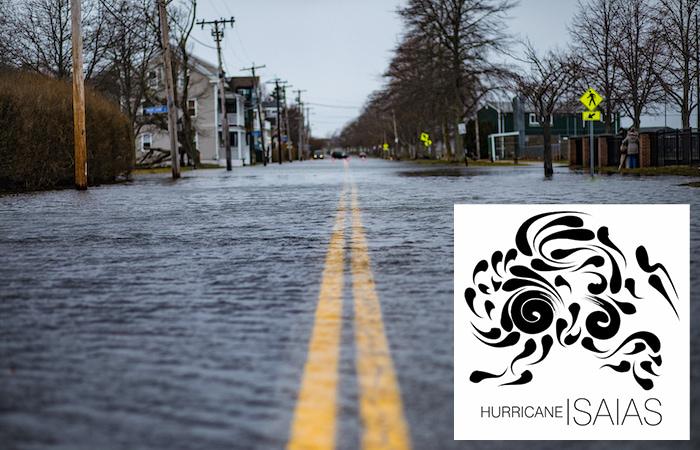Hurricane Isaias – The Season Opener

Table of Contents
Tropical Storms and hurricanes are given their names in alphabetical order from A to Z. Hurricane Isaias (EE-sah-EE-us) arose in the Atlantic in the latter days of July, and in a normal hurricane season we would not see an “I” named storm until the month of October. Because the ocean waters are abnormally warm, there is no doubt 2020 is going to be a very dangerous year for hurricanes.
As of the writing of this blog, Isaias has killed at least nine people, more than 3 million people are without power, and this hurricane will probably be the 11th billion-dollar disaster of the year. Here are the current ten, not counting Isaias:
Lessons Learned from Isaias:
- In high wind, trees can kill. At least four fatalities were caused when strong winds downed large trees onto homes or cars. If you are near large trees during high wind, don’t stay downwind of the tree. They will fall toward you.
- Hurricanes can produce lots of tornadoes. Two died in North Carolina when an Isaias-spawned twister tore through a mobile home park. It was one of 35 tornado reports following the hurricane’s landfall.
- Turn around, don’t drown. Hurricanes that move inland drop enormous amounts of rain, leading to widespread flooding. When flash flooding is occurring, find alternate paths if roads are flooded. A tiny creek in Allentown, Pennsylvania became a raging torrent of water that swept a driver away as she drove across a bridge on her way home from work; a standard route she drove every weekday.
Be prepared for power outages. Almost four million people lost power due to Isaias and some may not get theirs restored for a week. When electricity fails, have a hand-crank emergency radio on hand. The ER210 is small and lightweight but it represents five of the items every family should have in a disaster kit: AM, FM, Weather Radio, flashlight, and a hand crank + USB port that allows you to recharge your cell phone.
Isaias impacted more than a dozen states and did it very early in the season. Bear in mind the forecast for the remainder of the 2020 hurricane season is for a “hyperactive” number of storms: 10 more hurricanes, five of them “major”. That’s double what we expect in an average season, so watch out.
Get your house and your family ready now. Have a plan, build a kit, and always be the first to get the latest watches, warnings and advisories via the official “Voice of the National Weather Service”: NOAA Weather Radio. Nothing beats it!


